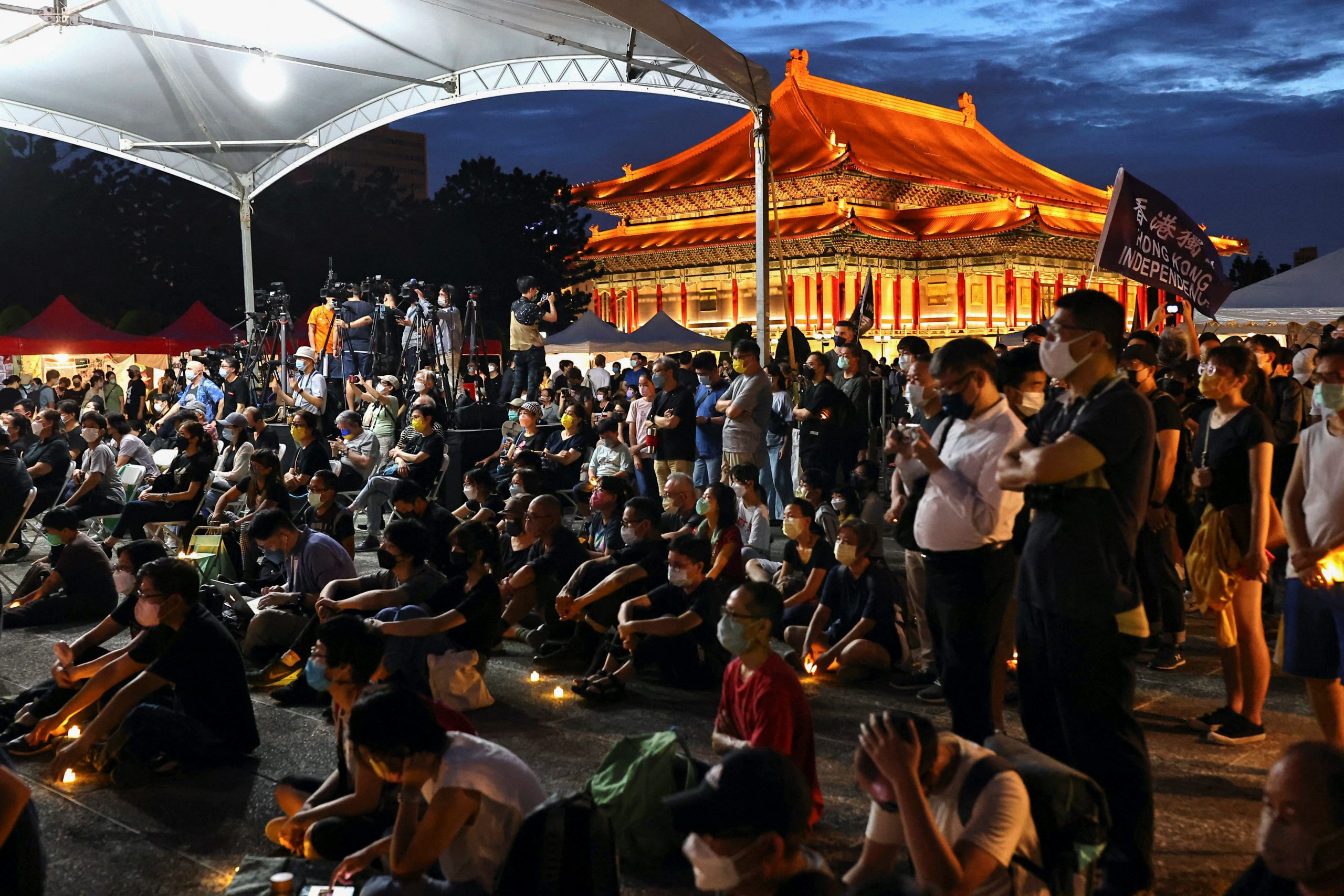
[elfsight_social_share_buttons id=”1″]
Hundreds of people gathered in Taipei on Saturday to commemorate China’s bloody crackdown on pro-democracy demonstrators in Beijing’s Tiananmen Square 33 years ago.
Chinese-run Hong Kong deployed heavy security to prevent any sign of protest there.
Saturday is the anniversary of Chinese troops opening fire to end the student-led unrest in and around the square in central Beijing. China has never provided a full death toll from the events of June 4, 1989, but rights groups and witnesses say the figure could run into the thousands.
China bans any public commemoration of the event on the mainland, and Hong Kong authorities have clamped down too, making democratic Taiwan the only part of the Chinese-speaking world where it can be remembered openly.
“It’s a symbol of how democracy is precious and fragile at the same time, and how people who care about democracy need to stand up for it or else authoritarians everywhere will think people don’t care,” said author Jeremy Chiang, 27, attending the event at Taipei’s Liberty Square.
Activists assembled a new version of the “Pillar of Shame” – a statue commemorating Tiananmen protesters that a leading Hong Kong university removed in December from its campus, where it had stood for more than two decades.
Shouts in support of Hong Kong rang out after the statue was put up.
Hong Kong’s leader, Carrie Lam, said this week that any events to commemorate those killed in the 1989 crackdown would be subject to national security laws.
In the Hong Kong’s Victoria Park, where people had come together for an annual vigil before the COVID-19 pandemic hit, authorities blocked off main parts of the venue and warned residents against illegal gatherings.
Hundreds of police, some with sniffer dogs, patrolled the park area and conducted stop-and-search checks. As night fell, floodlights lit up an empty expanse of football pitches.
The last time the vigil was held in Hong Kong, in 2019, more than 180,000 people attended, according to organizer estimates, filling six football fields.
“Everyone is remaining silent because they are terrified of getting arrested,” Hong Kong resident Victor, 57, who asked to be identified only by his first name, said inside the park.
China imposed a national security law on Hong Kong in June 2020 punishing acts of subversion, terrorism and collusion with foreign forces with up to life in prison. Beijing said the law was necessary to restore stability after anti-government protests in 2019.
‘TO REMEMBER IS TO RESIST’
Since the legislation was imposed, people or organizations affiliated with the sensitive June 4 date and events to mark it have been targeted by Hong Kong authorities.
Hong Kong has banned the annual vigil since 2020, citing coronavirus restrictions. Some democracy campaigners accuse authorities of using those rules to suppress activism, a claim that officials reject.
Last year, police blocked off the Hong Kong Park to prevent people gathering to commemorate the anniversary and arrested the planned vigil’s organizer.
“To remember is to resist,” prominent Chinese human rights lawyer Teng Biao told Reuters from the United States. “If nobody remembers, the suffering of the people will never stop and the perpetrators will continue their crimes with impunity.”
In Chinese-claimed Taiwan, President Tsai Ing-wen decried the “collective memory of June 4 being systematically erased in Hong Kong”.
“But we believe that such brute force cannot erase people’s memories,” she posted on her Facebook and Instagram pages.
U.S. Secretary of State Antony Blinken called the Tiananmen crackdown “a brutal assault”, adding in a statement: “The efforts of these brave individuals will not be forgotten”.
Chinese Foreign Ministry spokesman Zhao Lijian, at a routine news conference on Thursday, reiterated Beijing’s line on the events. “The Chinese government has long ago come to a clear conclusion about the political incident that happened in late 1980s,” he said.
Copyright 2022 Thomson/Reuters
